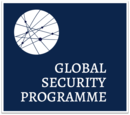Webinar: Global Security and its Political Dimension
8th March 2023, 12:00-1:00 PM, GMT
Zoom: Registration link
In this webinar, Dr. Annette Idler (University of Oxford) will be in conversation with our distinguished guest speakers to untangle the political dimension of global security. The webinar will explore the role of (geo)politics in global security, what the political dimension of global security consists of, and how it intersects with other dimensions of global security.
The speakers include:
Rana Mitter

Rana Mitter works on the emergence of nationalism in modern China, both in the early twentieth century and in the present era. China has always drawn on its past to draw lessons for the contemporary political scene; he believes that to help us understand the new China, we must look at its past.
He has authored of several books, including Modern China: A Very Short Introduction (2008, new ed. 2016), and the award-winning A Bitter Revolution: China’s Struggle with the Modern World (2004). His book China’s War with Japan, 1937-45: The Struggle for Survival (US title: Forgotten Ally) was named as a 2013 Book of the Year in the Financial Times and the Economist, was named a 2014 CHOICE Outstanding Academic Title, and won the 2014 RUSI/Duke of Westminster’s Medal for Military Literature.
Samuel Makinda
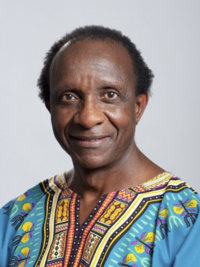
Samuel Makinda is the Professor of International Relations and Security Studies in the discipline of Social Sciences and Arts within the College of Arts, Business, Law and Social Sciences at Murdoch University. A decade earlier, he had been elected a Fellow of the World Academy of Art and Science in September 2001. He has established the Security, Terrorism and Counterterrorism studies program, which launched in 2005. In addition, he has published five books and numerous book chapters, refereed journal articles, as well as newspaper columns. He has held positions at the International Institute for Strategic Studies where he has been crucial in promoting the idea of non-military security. He has also taught at the Australian National University, the University of Western Australia, Flinders University, the University of Nairobi, and the Australian Defence College. In addition, he has been a researcher at the Brookings Institution in Washington, DC; the Global Security Programme at the University of Cambridge; St. Antony’s College at the University of Oxford; and the Centre for Strategic and International Studies in Jakarta. Samuel Makinda served on the Australian Foreign Minister’s National Consultative Committee for International Security Issues from 2001 to 2008. He was also a Foreign Affairs Specialist in the Parliamentary Research Service at the Australian Federal Parliament in the mid-1980s. Moreover, he participated in the design of the syllabus for Kenya’s National Defence College in the mid-1990s and helped establish Kenya’s Foreign Service Institute in 2007.
In addition to numerous other accolades, Samuel Makinda received Kenya’s medal of Elder of the Order of the Burning Spear (EBS) for his “distinguished service rendered to the nation” by President Mwai Kibaki in 2011. It is one of Kenya’s highest civilian honours.
Igor Gretskiy
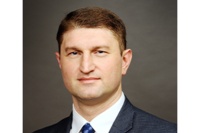
Igor Gretskiy joined the Estonian Foregin Policy Institute at the ICDS as a research fellow in July 2022. Previously, after successfully applying for the Tallinn Scholarship, in January-June 2022 Dr Gretskiy was affiliated with ICDS as a visiting fellow. The main goal ofthe scholarship is to develop cooperation between ICDS and research institutions in the CIS countries, Georgia, and Ukraine.
Up until spring 2022, Dr Gretskiy was an Associate Professor at the School of International Relations, St. Petersburg State University, Russia. In 2012-2014, he headed the Rectorate’s International Office at the University’s Smolny Campus. His research interests are mainly focused on Russia’s foreign policy towards Ukraine and Poland, and on political transformation in central and eastern Europe. Dr Gretskiy has frequently authored op-eds and provided expert commentary to the media on major political developments in the region. In 2009, he received a Cand. of Sc. degree in History of International Relations and Foreign Policy.
Thomas Tieku
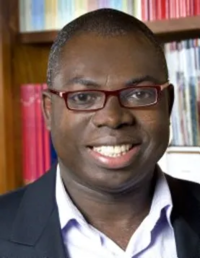
Thomas Kwasi Tieku is an Associate Professor of Political Science in King’s University College at The University of Western Ontario (UWO) and a former Director of African Studies at the University of Toronto where he won the Excellence of Teaching Award. He is also an award-winning author who has authored, edited or co-edited 5 books, and written over 35 refereed book chapters, and journal articles, including The Legon School of International Relations which won the 2021 Review of International Studies Best Article Prize. His latest co-edited book is The Politics of Peacebuilding in Africa (Routledge, 2022). His current research, which is supported by the Social Sciences and Humanities Research Council (SSHRC), focuses on informality in international organizations. He has consulted for several organizations including the World Bank Group, the United Nations, and the Canadian as well as the American governments.
Samira Duale
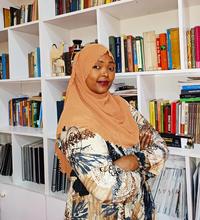
Samira Duale is an Independent Research Consultant who has conducted studies on various topics such as , SGBV study focussing on police attitudes towards the victims of sgbv, IDPs , focussing on the drivers and motivators of displaced people's choice of location to migrate to, women in peace building, conflict dynamics in Somali community during the colonial era and now, insecurity focussing on countering violent extremism in the horn of Africa Somalia country study and among others. She has conducted the above research studies in the regional member states of Somalia as well as it's capital Mogadishu. Before, deciding on being an Independent Research Consultant, she worked in the Office of the Prime Minister of Federal Government of Somalia, as a policy advisor mainly on gender, youth and security affairs. She also assisted in the ministerial and other Government agency's coordination and effective working relationships between them and the OPM. She has also worked with the Somali National Army (SNA) as their liaison officer to UNSOS and AMISOM. She has over 9 years of experience working in Somalia.
This Roundtable is co-hosted by the Minerva Global Security Programme, Blavatnik School of Government, and the Global Security Programme, Pembroke College. It is generously funded by the DT Institute.


